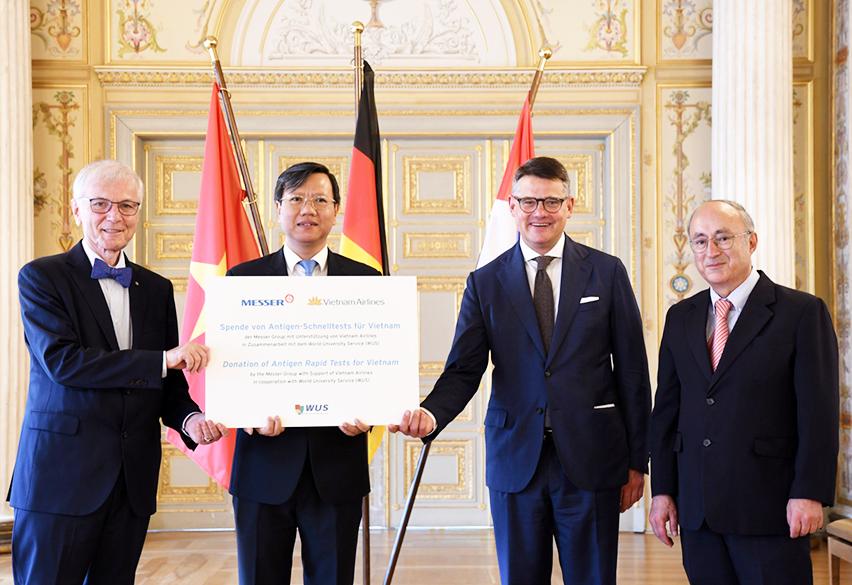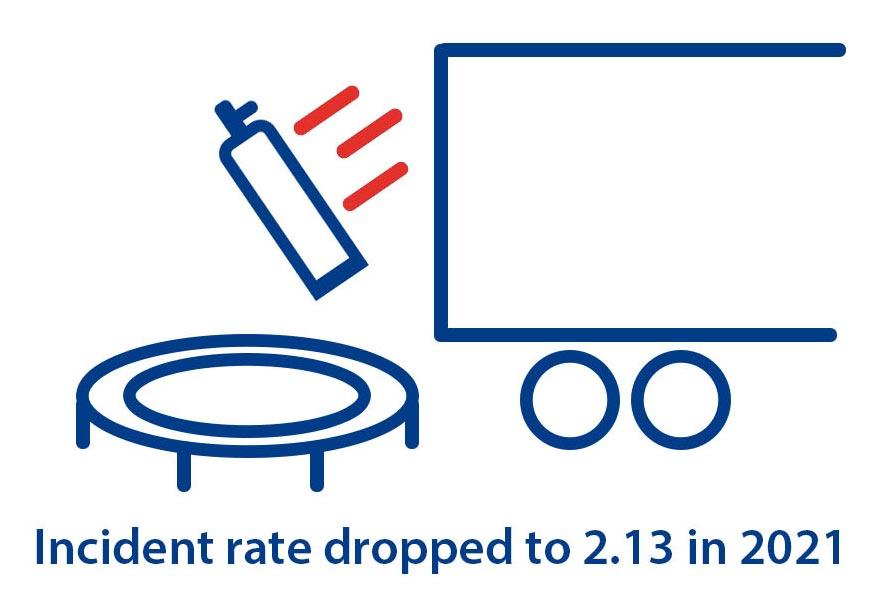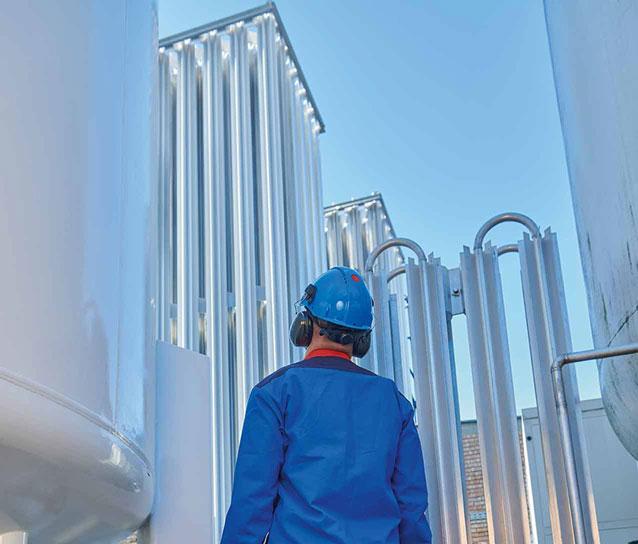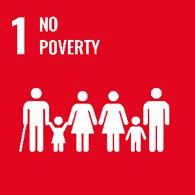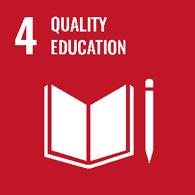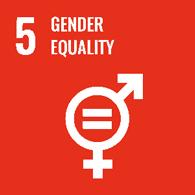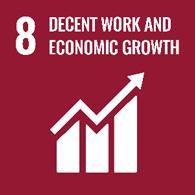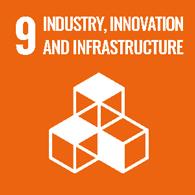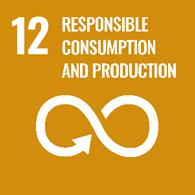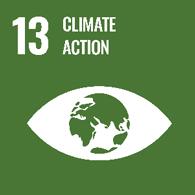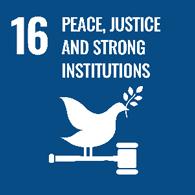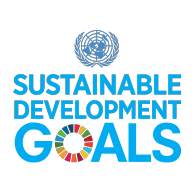UN Goal 3 - Good health and well-being
Breadcrumb
Child page UN Goal 3
Introduction UN Goals
In 2015, under the aegis of the United Nations, the international community adopted Agenda 2030. It lays out 17 global goals together with the call to implement measures to achieve those goals. In particular, the Sustainable Development Goals No Poverty, Health and Well-being, Quality Education, Gender Equality, Decent Work and Economic Growth, Industry, Innovation and Infrastructure, Resonsible Consumption and Production, Climate Action and Peace, Justice and Strong Institutions are of great importance to Messer. Both global and local projects and activities, as well as initiatives supported by Messer, contribute to various sustainability goals. The individual projects contribute to long-term improvement and can be viewed here:
Accordion UN goal 3
Safety of our employees
In order to ensure the safety of our employees, our network of safety officers study and document all safety-related incidents at Messer. Information and training materials help further improve the safe handling of our products and applications and encourage safe behavior by employees at the various workplaces.
|
|
|
The number of reported industrial accidents with loss of working hours increased at Messer from 44 in 2020 to 48 in 2021. The rate of loss of employee working time per million hours worked (accident frequency rate) increased from 2.0 in 2020 to 2.18 in the year under review. The number of working days lost per million hours worked (industrial accident severity rate) rose from 56.3 in 2020 to 69.15 in 2021. A total of 81 reportable industrial accidents were recorded in 2021, which was two fewer than in the previous year. The accident frequency rate of reportable industrial accidents per million hours worked decreased from 3.7 to 3.67. Unfortunately, we suffered one death among Messer’s workforce last year due to a traffic accident.
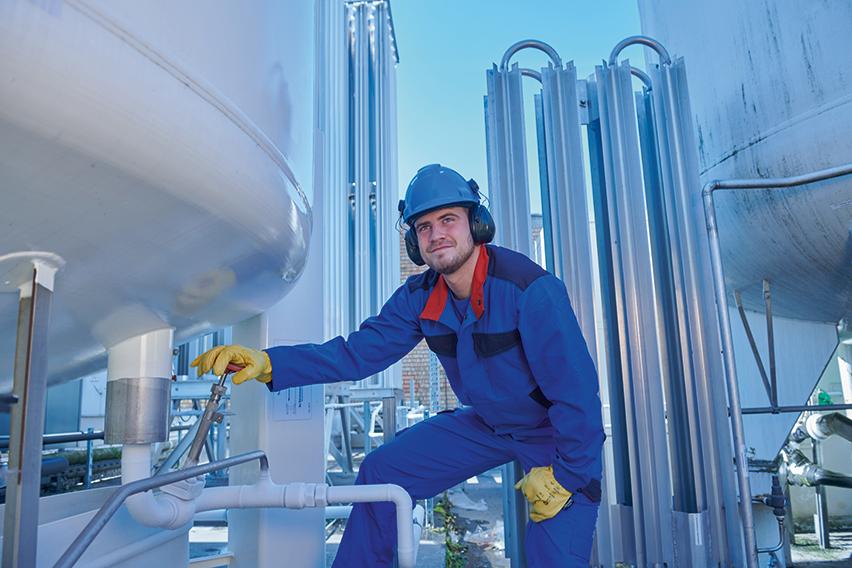
Safety Week 2021
As in the previous year, this year’s Safety Day once again took the form of a Safety Week: from September 13 to 17, 2021. Each national subsidiary was free to choose the optimal timing for its own Safety Day during that week. Pandemic-related precautions also had to be taken. The interconnecting motto of Safety Week 2021 was “Managing risks.”
Examples of Safety Week implementation
At Messer’s German locations in Bad Soden, Krefeld and Bad Hönningen, Messer Safety Day took the form of a virtual meeting: A presentation explained the significance and sense of risk analyses. Practical examples showed how complex professional risk management can be.
At our production sites in Castrop-Rauxel, Salzgitter, Siegen and Speyer, the employees gathered for in-person meetings in small groups.
At Messer in France, a total of 17 in-person workshops were held in small groups at nine locations. Two virtual meetings were also organized, where one of the main messages was that risk management concerns all of us and not just our employees in the production facilities or filling plants.
Because Messer in Poland equipped its locations with defibrillators in 2021, Safety Week there started with an online training course about their operation. Presentations about risk management and a subsequent feedback session rounded out the activities.
Messer in Switzerland organized a fire protection exercise for employees. Among other things, employees learned how to use a fire blanket and to identify various types of fire extinguishers.
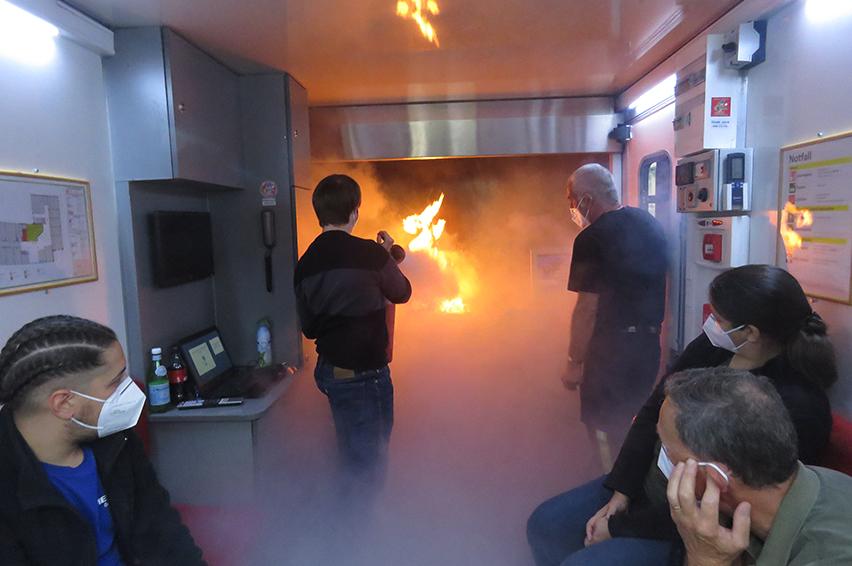
Messer in Spain organized all events as online meetings. There were video conferences where the significance and purpose of risk analyses and concrete measures were presented. Employees with direct access to the company’s own computers attended the video conference in the conference rooms of the production plants.
The team from Messer in Thailand organized a meeting in the hall of its filling plant. The presentation emphasized personal accountability among all employees – every time and everywhere.
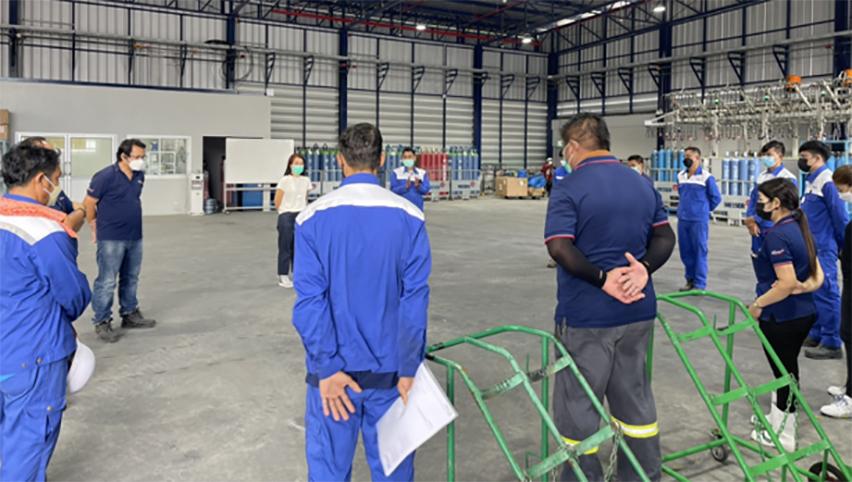
In Hungary, Dr. Emil Toldy-Schedel, founder of Hungary’s first post-Covid center, gave a presentation. He explained the complexity of a therapy process for treating the long-term effects of a Covid-19 infection.
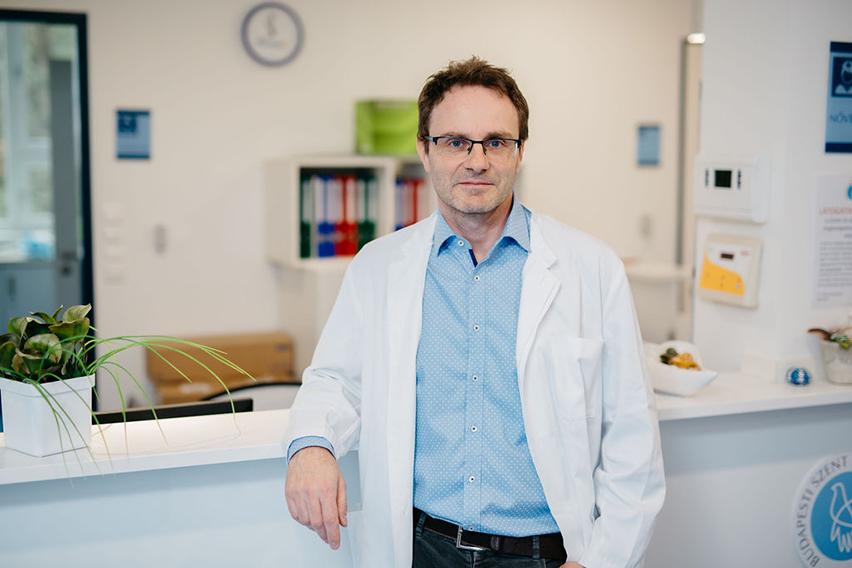
Europe: EIGA safety awards
Every year, the European Industrial Gases Association (EIGA) recognizes member companies for accident-free work at their sites. In 2021, this included four Messer locations and companies. The Bad Soden (Germany) site and the Dugi Rat (Croatia) site each received a “Silver Safety Award” for ten consecutive years without reportable work-related accidents. The Pančevo (Serbia) site and the Saint-Herblain (France) site each received a Bronze Safety Award for five consecutive years without reportable work-related accidents.
Americas: Safety awards of the Compressed Gas Association
In North America, Messer was recognized by the Compressed Gas Association (CGA) for its safety performance in several categories. One Messer site received the safe facility performance “Silver Award” for 500,000 Hours or 10 Years with no lost time work accidents. Another site received the safe facility performance “Bronze Award” for 250,000 Hours or 5 Years with no lost time work accidents. Messer Americas was recognized with the Fleet Safety Excellence Award for bulk gas transportation, over 20 million miles per year. Finally, a Messer fleet engineering supervisor was recognized with the CGA’s Charles H. Glasier Safety Award in recognition of his safety leadership in the industrial gas industry.
Spain: FEIQUE award for safety
On October 8, 2020, Messer Ibérica was honored for the seventh consecutive time with the safety award of the Spanish chemical industry employers’ association (FEIQUE) for another accident-free year. Messer Ibérica has reported zero industrial accidents for more than 18 years now at the Vila-seca air separation unit, more than 11 years at the El Morell site, and more than 10 years at the Alicante filling plant.
China: Award for safe production
In 2019, the companies of the Messer Group including Western Europe held a combined total of 1,452 customer safety seminars, which were attended by 4,392 people in all. The facilities operated at our customers’ sites underwent technical inspections an average of 1.07 times and they underwent safety audits an average of 0.15 times. The 2020 fiscal year will mark the first time that the corresponding data will be available for Messer in North and South America. In 2019, we reissued our “Pocket Safety Guide” brochure series. It provides information about the safe transport and handling of gas cylinders, the safe transport of dry ice, and the content of gas cylinders.
Safety of our customers
Messer assists with development of an UV-C desinfection system
The worldwide coronavirus pandemic has underscored the importance of regularly disinfecting hands and surfaces and complying with hygiene measures. In 2020, Messer worked with Heraeus Noblelight to develop a mobile UV-C disinfection system for decontaminating surfaces and shapes of all kinds. To make it as versatile as possible to use, the system is designed as a hand-held device. The system from Heraeus’ Soluva product range can be used to sterilize not only production machinery and vehicles, but also public buildings and offices, as well as numerous fabrics, motor vehicle interiors, and control panels, along with many other surfaces.
Messer itself is relying on the mobile UV-C disinfection system throughout Europe to disinfect gas cylinders for medical oxygen when hospitals or patients return them for refilling. Disinfection with UV-C light offers many advantages over the chemical approach: it considerably reduces the amount of effort required; it minimizes risks for operators, consumers and the environment; and it lowers the risk of material damage to pressure tanks and their accessories.
Safe handling of gas cylinders
Three new video clips from Messer informed viewers how to deal with gas cylinders safely. They describe the labeling of the cylinder contents and demonstrate the most important rules for transport and handling. The clips are a supplement to the pocket guides, which are available to download as PDFs at messergroup.com. They cover these topics comprehensively.
Safety of our logistics and vehicles
To manage the road transport of gases as safely as possible, Messer uses – in addition to the statutory regulations – a proven transport safety concept. In Europe, by signing the European Road Safety Charter, we have also undertaken to focus specifically on the safety of our fleet.
For our logistics, we developed safety measures on the national and international level. A continuous exchange of experience among logistics and safety personnel helps to further improve the level of safety in this area.
For the most part, Messer employs external carriers to transport our gases, with the exception of Messer in North America where employee drivers transport gases. Accordingly,
While Messer in America uses its own employees to transport gases, Messer in other regions primarily contracts external transport companies. In this case the legally required training of the drivers is the responsibility of those companies. We supplement their training courses with a driver training program developed by Messer Corporate Logistics. This is supported by an on-board computer system, which has been used in the vehicles since 2019. It records safety-related driving data, and thereby contributes to goal-oriented training. Based on driving data and integrated sensors, it also encourages more defensive driving through the use of acoustic and visual cues while on the road. This makes our transports even safer while also protecting our environment through lower fuel consumption.
In 2021, there were 74 preventable accidents during the transport of our cylinder gases. In the previous year, that number was 64. That apparent degradation in performance should be viewed, however, in the context of the accident frequency rate per million kilometers driven: it fell from 3.05 in 2020 to 2.13 in the year under review. So in proportion to the distance traveled, there were fewer accidents on average. The number of avoidable accidents while transporting liquefied gases was 161 in 2021 versus 194 in 2020. This positive trend is confirmed by the frequency rate per million kilometers driven: from 0.89 in the previous year, it fell to 0.8 in 2021.
Through appropriate supplier management, driver training courses and technical assistance, such as the new on-board computer system, we want to reduce the absolute number of avoidable accidents and further improve the accident frequency rate. Driver manuals with individually tailored content for operating bulk, cylinder and service vehicles keep all key information on hand at all times.
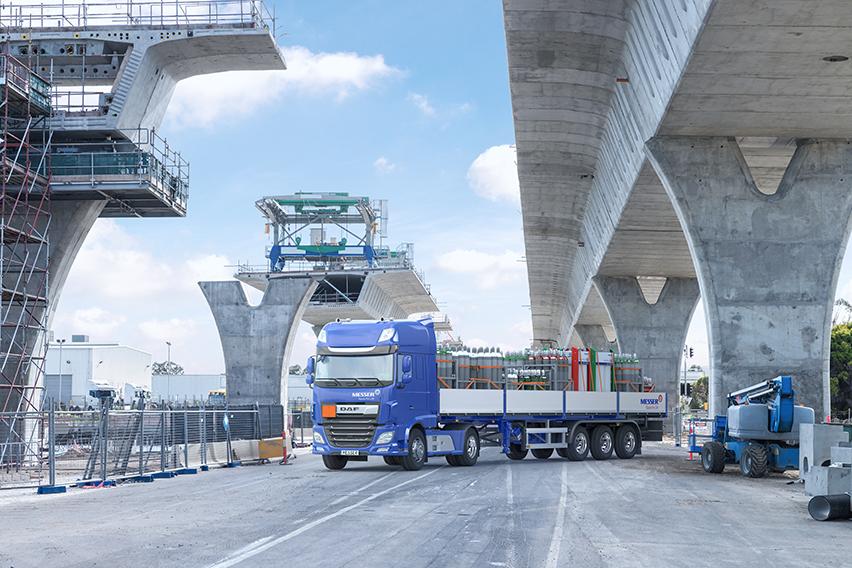
Messer is a partner in the medical and pharmaceutical sector
Messer is active in the medical business in over 20 countries and provides services ranging from consultation on the delivery of medicinal gases or gases as medical devices through to the planning, installation and maintenance of supply systems – a complete service package from a single source. Medical accessories and consumables round out the offering.
As a company that is also active in the pharmaceutical sector, Messer complies with all national, European and international regulatory requirements. For gases as medicinal products, this specifically includes the requirements of (European) Good Manufacturing Practice (EU-GMP) and the specifications of the European Pharmacopoeia. Our gases as medical devices comply with the Medical Device Regulation (EU 2017/745), the previously applicable Medical Device Directives, and the corresponding national laws.
Internal audits, a standardized pharmacovigilance system, and validated procedures and computer systems ensure our product and supply quality.
Supplying medical gases for people suffering from Covid-19
The supply of medical oxygen to hospitals for ventilation purposes for people suffering from Covid-19 was and is especially important:
Supply to the patients during the crisis can be assured by significantly increasing production capacities, installing additional tanks and evaporators at our customers’ facilities, and providing additional transport equipment. These measures are being implemented while applying additional protection systems for our employees.
With a new filling center in Saint-Georges d'Espéranche near Lyon, Messer in France was able to satisfy the SARS-CoV-2 pandemic-driven increase in demand for medical oxygen in cylinders and bundles. The successful start-up of the filling center in early-March 2020 followed several months of preparation along with obtaining the necessary approval from the French regulatory agency for medical devices and health products.
Spain is one of the countries most affected by the SARS-CoV-2 pandemic. Like many of our neighboring chemical companies in the Tarragona chemical complex, Messer in Spain reacted rapidly and increased our production of urgently needed products. In the first weeks of the emergency, we doubled our production of medical oxygen. We delivered oxygen to 170 medical centers in all – 32 of which are hospitals with liquid supply – but also patient transport services and home care providers. We signed a new agreement with a home care provider to supply nursing homes in the Barcelona area. Our engineering and installation specialists are working intensively to expand oxygen supply to hospitals and nursing homes and to install gas supply systems in field hospitals.
Messer in Hungary supplies medical oxygen to some 140 medical facilities nationwide, nine of which are hospitals that primarily treat people suffering from Covid-19. Our teams in Filling regularly and systematically sterilize our medical gas cylinders along with the filling stations. And they carry out their work under extremely strict precautionary measures.
Messer in Serbia has been able to meet the increased demand of hospitals and clinics: as an integral part of the equipment for stockpiling and supplying medical oxygen, we installed additional tanks in the Clinical Center of Serbia, in Karaburma Military Medical Center in Belgrade, and in the military hospital in Niš. At Zemun Clinical Center, we expanded supply capacities by also adapting the central pipeline supply and three substations to the increased demand for medical oxygen. In addition, transportable cryogenic tanks were installed in the Clinical Center in Kragujevac, in Zvezdara Clinical Hospital Center, in the Infectious Disease Clinic in Belgrade, in “Dragiša Mišović” Clinical Hospital Center – the maternity and children’s hospital in Belgrade – and in Karaburma 2 Military Medical Center.
New York was affected by the coronavirus pandemic like no other metropolitan area in the USA. Due to the tremendous demand for medical oxygen, we increased production in our own plants. Newly configured truck routes ensured continuous delivery. Our teams monitored the systems every day, reacted rapidly, and collaborated closely with every hospital. This also included the solicitation of new demand quantities along with information on how to recognize when our bulk equipment might need maintenance.
The “Expofutura” convention center in Pereira, Colombia, was temporarily converted to a field hospital to treat people suffering from Covid-19. This added 45 patient beds to the region’s capacity. Messer in Colombia also installed a piping network to supply medical oxygen.
National Nurses Week in Colombia
During 2020's “National Nurses Week”, Messer honored the healthcare personnel who work for the company’s own REMEO Medical Services. The REMEO program of Messer in Colombia offers life-saving medical oxygen and home care for people on artificial ventilation. Messer also remains firmly committed to supplying products to people suffering from Covid-19 – both in REMEO centers and in hospitals throughout Colombia that depend on Messer’s medical gases and services.
In Colombia, Messer is the market leader for stationary and home care, supplies hospitals with medicinal gases, and helps them develop their gas supply systems. Although the systems generally run only as far as the hospital rooms or operating rooms, in Colombia the supply is designed for the patients themselves. Along with the permanently installed infrastructure, Messer also supplies inhalers and ventilators as well as other accessories needed for the supply of medicinal gases or breathing air to individual patients. In so doing, Messer supports more than 36,000 people at home, who rely on supplemental oxygen to breath. In addition to gas in cylinders, most of them receive oxygen concentrators that filter oxygen from the surrounding air. Within the framework of its REMEO program, Messer also maintains six clinics of its own for some 350 people whose severe chronic respiratory diseases necessitate continuous care. The REMEO clinics also have sleep laboratories for treating nocturnal respiratory disorders. In all, Messer employs some 1,200 nurses and caregivers in Colombia, who are specially trained and can develop their expertise considerably through their work with REMEO.
Spain: Gas supply for people with cerebral palsy
In the Province of Tarragona, the Spanish foundation “Fundació La Muntanyeta” supports people with cerebral palsy, in order to defend their rights and improve their quality of life. More than 100 people receive care in a school, a day care center and a dormitory. In 2019, Messer actively supported the construction of a day care center and additional dormitory rooms and provided a vacuum system and medical oxygen supply for all rooms. People with cerebral palsy often suffer from respiratory trouble. According to a concept from Messer, the supply system makes it possible to provide the healthcare in the room that the affected person occupies. They can remain in their own private space, and therefore in a comfortable environment, when they need medical assistance.
Czech Republic: Sport and relaxation for work at Messer
Health is about more than just medicine – a positive work environment is also important for one’s well-being. For that reason, Messer in the Czech Republic furnished its headquarters in Prague with a new break area that includes a kitchen, a rest zone and two telephone rooms in 2019. And the offices of the Czech joint venture MG Odra Gas in Ostrava-Vratimov have also been renovated and equipped with sport areas. With these investments, Messer in the Czech Republic has been creating the right conditions for a satisfying, healthy workplace – and thereforealso for a motivated, effective team.
Hungary: Company health insurance for all employees
Since 2019, through its company health insurance fund, Messer Hungarogáz offers its employees the full range of private medical services. The high-quality healthcare services of Medicover are available to the employees in all medical areas, including examinations, state-of-the-art diagnostics, and hospital care. The agreement is supplemented by the full spectrum of emergency services throughout the capital city of Budapest. In this way, even in an emergency, employees and their families have ready access to high-quality medical services without waiting periods.
Germany: Christmas donation for children with cancer
In 2019, once again, Messer companies in Germany donated some 5,500 euros – profit from the sale of food, beverages and stainless steel art – to the association “Hilfe für krebskranke Kinder Frankfurt e.V.” (“Frankfurt Helps Children with Cancer”). November 2019 marked already the fifth time that Messer has organized a Christmas market on Messer Square at the corporate headquarters.
Spain: Sporty kids
In 2019, Messer started supporting the “Montbike Messer Kids” mountain bike club, where girls and boys from 5 to 14 years of age practice. They already have competed in mountain bike and cross-country races in Catalonia and other regions of Spain as well as in international competitions in France and Belgium. Three club members are already classified as Catalonian champions.
Switzerland: Promotion of disabled sports
For many years now, Messer in Switzerland has been supporting the association PluSport Behindertensport Schweiz. That commitment to the promotion of disabled sports in Switzerland was recognized once again in 2019.
Slovenia: Support for running events
Messer in Slovenia supports regional sporting events in which employees of Messer Slovenija also participate. One of them is Dani Bastašic, who works as a warehouse clerk in the cylinder gases area. Each year he runs in more than ten races throughout Slovenia – including the 2019 edition of the “Vetrov tek” race, which was the 11th time it has been held in Ruše. Supported by Messer, the competition attracted many running enthusiasts of all ages.
Brazil: Cancer prevention awareness
In recent years, Messer in Brazil has launched initiatives for the early detection of breast and prostate cancer. To raise the workforce’s awareness of cancer prevention, virtual meetings with doctors were held, e-mails were sent out, and information was provided via LinkedIn. In Brazil, breast cancer is one of the most fatal diseases in women from 35 to 54 years of age. Prostate cancer is considered to be the second most frequent form of cancer among men.
Spain: Safety training at two locations
Messer in Spain conducts annual safety drills. In November, their plants in El Morell and Vilaseca simulated hazardous conditions that can occur in connection with oxygen and hydrogen. The exercises were supported by the fire departments of the Tarragona chemical complex, which are maintained by the member firms of the local chemical association.
USA: Cooperation with rescue personnel
Jason Caver, plant technician at Messer Americas in Birmingham, Alabama organized plant tours for local rescue personnel in small groups. The visitors were given an overview of the operations of the plant. Site tours focused on the rescue personnel’s correct response during potential emergencies on the company grounds along with the minimization of associated dangers.
USA: Warning about falling objects
Messer Americas used online training courses to raise awareness for the dangers of falling objects. Employees of Messer and of outside companies participated. DROPS, as the training program was aptly named, relied on the train-the-trainer model, whereby people who had already been trained could pass their newly gained knowledge along to the rest of their team.
Resupplying oxygen during the pandemic
The coronavirus pandemic caused a dramatic increase in the demand for medical oxygen, especially during the second and third waves. Messer undertook a series of actions to address it. In filling plants for cylinder gases, which normally manage with a day shift, additional shifts were organized. At peak times, some plants worked around the clock. The same was true of logistics. One unit that had been shut down was restarted.
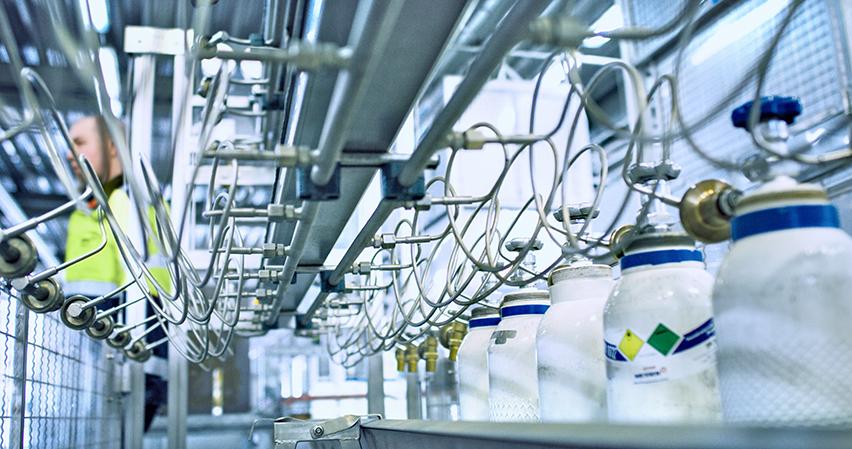
Dry ice protects mRNA vaccines
At -70°C, the mRNA vaccine against the Covid-19 virus remains stable for a long time. To maintain that temperature while transporting the vaccine, dry ice is often used: it has a temperature of -78.5°C. Since the approval of the first mRNA vaccine, the Messer subsidiary ASCO has experienced a huge increase in demand for dry ice and the associated equipment. Many logistics companies have built up the relevant infrastructure, often relying on expertise and products from ASCO and Messer as well as partner companies.
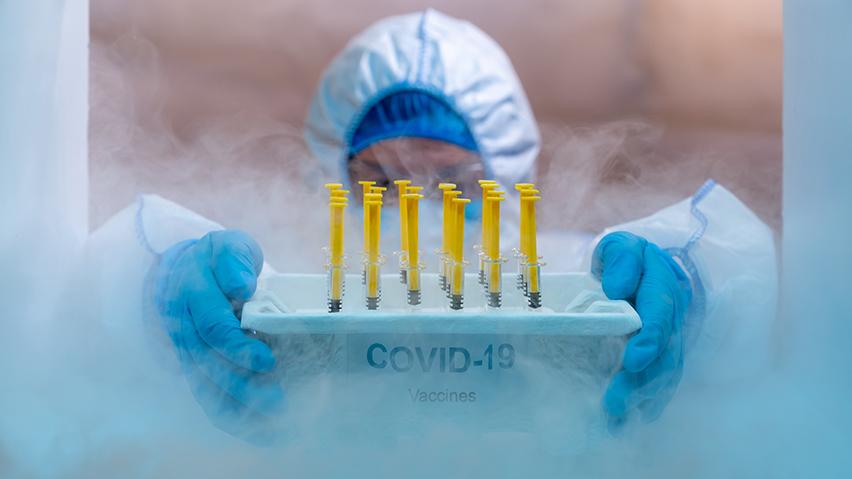
Freeze-drying for health
Freeze-drying can keep the active ingredients of drugs and vaccines as well as the vitality of bacteria cultures intact for extended periods. And liquid nitrogen is ideally suited to provide the required cooling. Messer works in close collaboration with manufacturers of the equipment required for these applications.
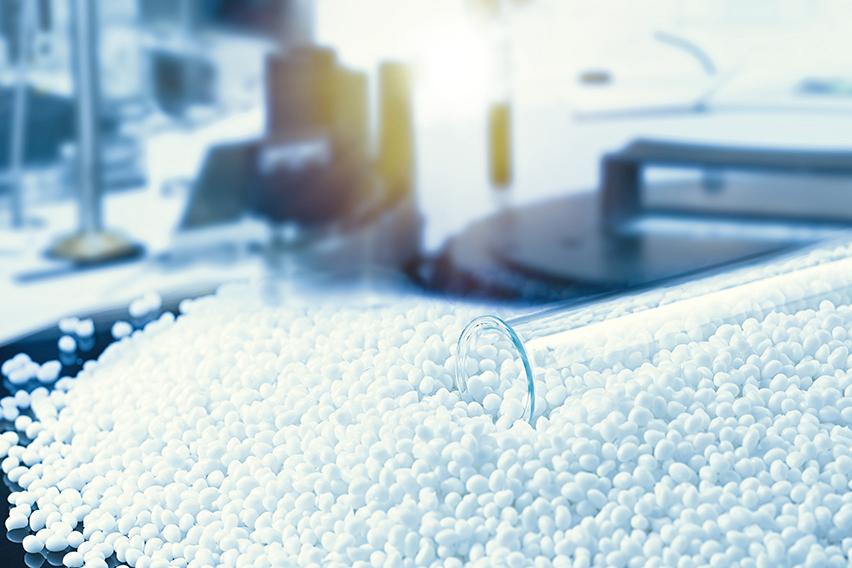
Gas mixture for fertility clinics
Along with cryogenically liquefied nitrogen, the fertility clinics of the international Vivaneo Group in some countries use a ternary mixture from Messer to grow egg cells and embryos in the incubator. In this new collaboration, Messer had two strong sales arguments: the application-specific gas mixture itself and its immediate availability – six weeks is the typical lead time in this market. Messer also supports the fertility clinics with reliable liquid nitrogen service.
Austria: Medical oxygen cylinders for India
In early May of 2021, Messer in Austria delivered 400 steel cylinders for medical oxygen, which were ordered by the Austrian Ministry of the Interior and the Organizational Development Department of the Workers' Samaritan Foundation Austria. The cylinders were part of an aid shipment sent to India by air freight. At that time, Indian hospitals and clinics were in an extremely critical situation due to the Covid-19 pandemic. Among other things, there was a serious lack of medical oxygen and oxygen tanks.
Colombia: Specialized in healthy sleep
During the coronavirus pandemic, Messer in Colombia developed a concept for providing online information to people who suffer from sleep apnea. The offering featured webinars led by experts from the fields of medicine, therapy and psychology, who specialized in the treatment of sleep disorder-related diseases.
France: Exchange with medical professionals
On March 30, 2021, a medical expert panel convened for the first time at Messer in France. The purpose of the event was to prepare for the market launch of Serynox/Placynox, an equimolar mixture of oxygen and nitrous oxide. Participants discussed its use and the associated benefits in the medical field, including obstetrics.
Germany: Gases for leak checking
Pharmaceutical packaging must be sealed to maintain the sterility of the contents and keep contaminants out. Seals are inspected using laser beams and sensors along with purge and calibration gases. The German machinery manufacturer Wilco has automated this process with high-tech machines and procures the necessary laboratory gases from Messer. Moreover, Wilco uses CO2 for so-called “bombing.” This involves exposing containers to a high-pressure carbon dioxide atmosphere in a closed chamber. The process detects any leaks in a matter of seconds.
Germany: NO gas mixtures for a hospital in Langen
Asklepios Klinik in Langen, Germany, expanded its ICU bed capacity. While on a ventilator, intensive care patients there receive a precisely metered quantity of nitrogen monoxide, which Messer provides in medical gas cylinders with nitrogen as a carrier gas. Messer also supplies consumables such as tubing for metering and measurement systems along with various accessories.
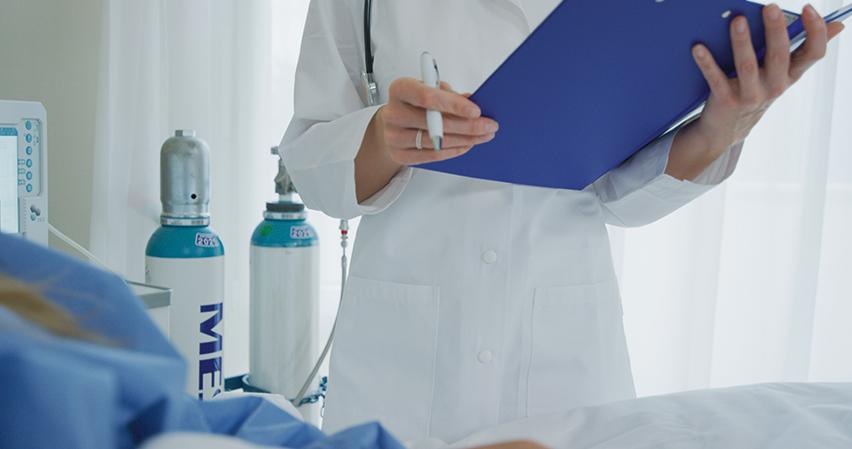
Hungary: Gas cylinder trolley for hospitals
The Hungarian sales team developed a gas cylinder trolley specifically tailored to meet the needs of hospitals and clinics. It is handy, easy to move, and offers space for two medical gas cylinders. A quick-change system makes it possible to switch the hose connection from one cylinder to the other very easily. The new trolley is used to supply medical gases for in-patient care.
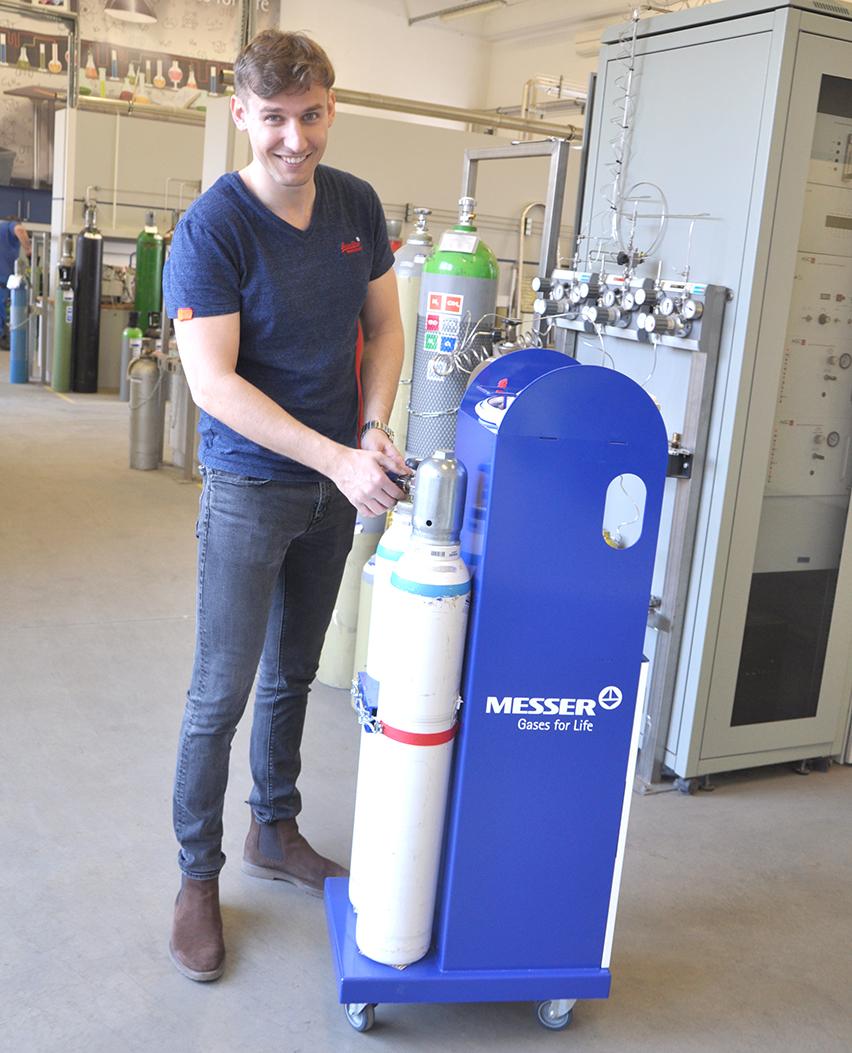
Hungary: Gases for Covid-19 research
Messer in Hungary signed an agreement with the National Public Health Center (NNK) to supply special gas mixtures and CO2. The gases are needed for coronavirus research. CO2 serves as the atmosphere for bacteria cultures and cell growth.
Hungary: Messer supports post-Covid center
Messer supported the establishment of Hungary’s first post-Covid center at Szent Ferenc Hospital in Budapest with a donation, gases expertise and the necessary products. Messer installed the technical equipment for the sophisticated gas supply system and satisfied the dramatically increased demand for gases used in post-Covid therapy.
Netherlands: Covid-19 rapid breath analysis
The Dutch company Breathomix specializes in breath analysis and the development of so-called “electronic noses,” which can be used for the simple, rapid detection of a wide range of diseases, including pulmonary diseases. The “SpiroNose” electronic nose analyzes the full range of volatile organic compounds in exhaled air in real time, and can thereby rule out a SARS-CoV-2 infection within one minute. The device is calibrated with one of our gas mixtures.
Slovakia: Evaporators for hospitals
To ensure an adequate supply of oxygen during the coronavirus pandemic, Messer installed higher capacity oxygen evaporators in several Slovakian hospitals. As the main provider of medical gases in Slovakia, we also resupplied them with the necessary oxygen.
Spain: Medical gases for Covid patients
Since early 2020, Messer has been supplying medical gases to Burgos University Hospital. During the second wave of the coronavirus pandemic, Burgos was one of the hot spots in Spain. The university hospital, one of the largest hospitals in the region, treated most of the Covid cases there, so the demand for medical oxygen rose dramatically. Messer installed a mobile auxiliary tank along with an additional evaporator and ensured the resupply of medical oxygen.
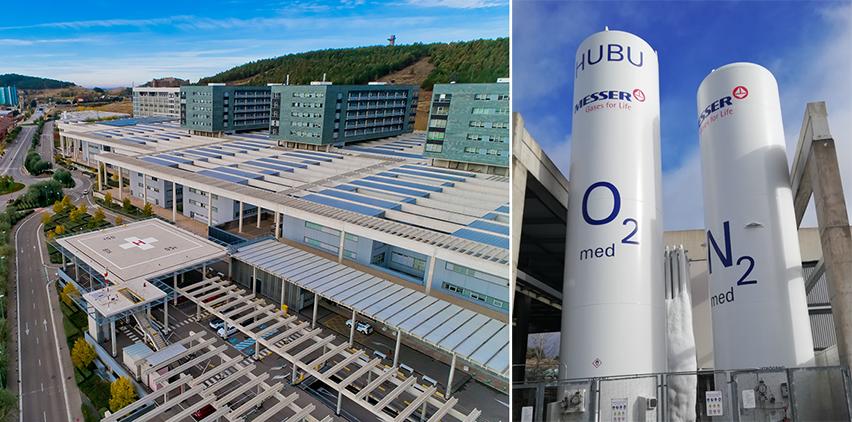
Spain: Stem cells from umbilical cord blood
Stem cells from umbilical cord blood likely hold the key to healing some serious diseases. At the Spanish cell bank VidaCord, parents can store the valuable material for future use. The cord blood is collected after birth and the nucleated cells, which also include the hematopoietic stem cells, are separated and cryogenically stored. The cooling and storage facilities use liquid nitrogen from Messer.
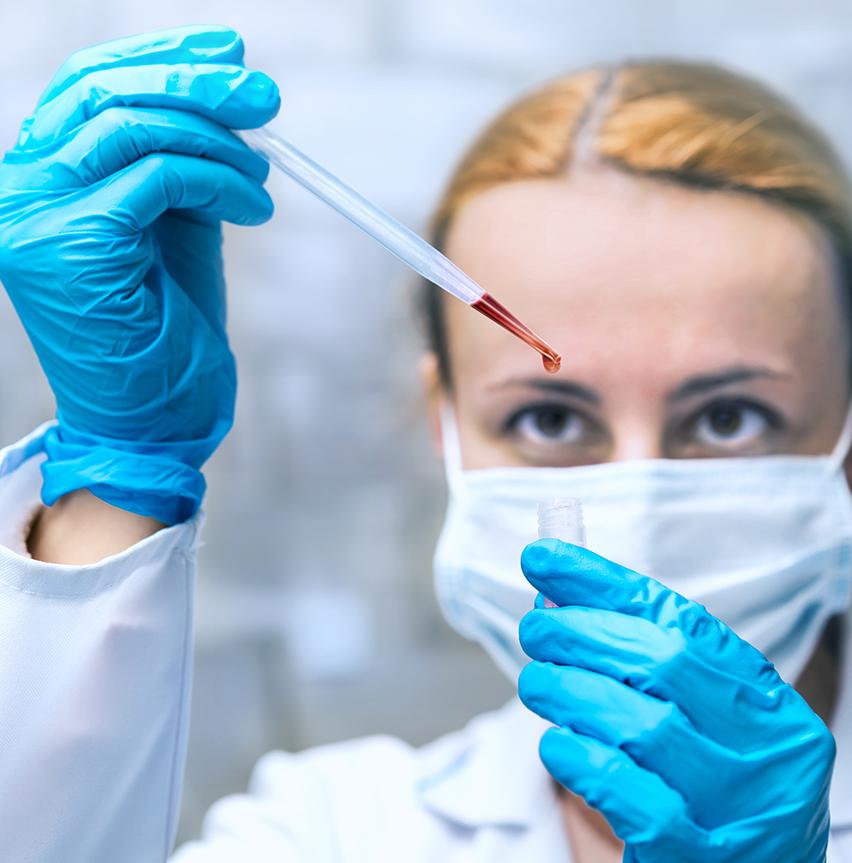
Colombia: Support for patients and victims of violence
Employees from Messer Colombia participated in the “Reading to our Patients” program at REMEO healthcare facilities. The program which encourages spending time with patients by reading to them provided much needed companionship. Employees also donated clothes to support women who are victims of violence and provided clothes and toys for their children through the Fundevida Foundation.
Spain: Donation for popular sports
Messer in Spain organized several activities to promote sports for children and adolescents and handed over donations to the Johan-Cruyff Foundation and the Costa Daurada soccer campus. The Cruyff Foundation develops sport projects for abused children and for children with disabilities. The Costa Daurada soccer campus is an association dedicated to the promotion of soccer sports for children and adolescents from 6 to 15 years old. Messer sponsors sportswear and accessories for the summer campus.
Switzerland: Recognition for promotion of disabled sports
For many years now, Messer in Switzerland has been supporting the disabled sports association PluSport. In 2021, we received another certificate in recognition of our support of disabled sports in Switzerland.
Vietnam: Covid rapid tests donated, donations received
In July 2021, Messer donated 30,000 Covid-19 rapid antigen tests to Vietnam. Messer regularly provides support to communities in areas surrounding its Vietnamese production sites and has helped establish and upgrade several hospitals and schools there in recent years.
Our worldwide workforce is also committed to supporting Vietnam: the proceeds from an in-house solidarity campaign helped rebuild the apartments and homes of our Vietnamese workforce. They were damaged or destroyed by tropical storm Molave. The donations also procured a power generator for the medical facility of the municipality of Dung Quat and repaired a school.
